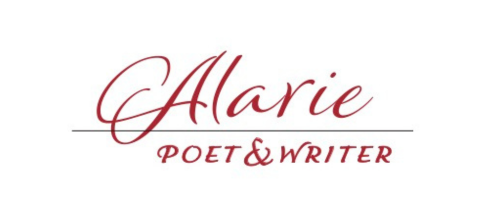When Art Inspires Words: Ekphrastic Poetry
Red and Green by Lorette C. Luzajic (Canada) 2021. This collage now hangs in my home.
[Archived from February 2020]
I can’t tell you how excited I was to discover The Ekphrastic Review soon after it launched in July 2015. Finally, I could publish my poems along with the art that inspired them! The editor and founder, Lorette Luzajic, is both an artist and writer: perfect credentials for the Queen of Ekphrastic Poetry. We hit it off immediately, because we share the same philosophy.
Lorette C. Luzajic, artist and writer from Toronto, founding editor of The Ekphrastic Review.
A poem must surprise the poet in some way so that it will surprise the reader. It’s like telling singers on TV competitions that they must make a cover their own, create something beyond a second-rate copy of the original. A straight description might work for an art history book, but not for poetry. An ekphrastic poem should be a good poem even if you don’t see the art.
I loved Luzajic’s earlier poetry collection, Aspartame, so I rushed to Amazon to get her new book last week. Pretty Time Machine elevates ekphrastic writing to a new level.
Pretty Time Machine, the title of the book, the cover art, and the last poem, is a bargain. Few poetry books reach 201 pages unless they are collected poems. As the cover says, they are ekphrastic prose poems, meaning they have justified margins like a novel. But don’t get bogged down trying to define what makes a prose poem, this collection defies categories. It’s unlike any poetry book I’ve read.
Luzajic gives the title, date, and artist of each inspiration piece at the beginning of the poems. It would have been a cost and copyright nightmare to print them, but she has compiled a link to the art for those who want to see it: http://www.mixedupmedia.ca/pretty-time-machine.html
What makes these ekphrastic poems different is that it’s easy to forget she started with art prompts. There’s something for everyone here, even readers who don’t think they like poetry. Most of the time, I felt I was reading memoir. It seems to be about Luzajic’s life, like the art tapped some personal memory. However, we can never assume that the speaker in a poem is the poet or that she didn’t use hyperbole or bend the truth to get to greater truths.
In addition to being a time machine, this collection is a transporter. Many of my favorite poems are about her travel all over the globe, Europe, Mexico, South America, the U.S. It’s also a food memoir (love of food and wine – another thing we have in common). Many of the excursions are out into nature as well as visiting the usual cathedrals, museums, home of Frida Kahlo, etc.
Hikers will enjoy poems like “Misery Bay,” which says, “…Here in Manitoulin, in the wild valley between quartz hills and blueberry moss, we are Canadian to our marrow. Our soundtrack, lonely loons.”
Occasionally, I did remember there was a painting behind the poem. “Black and Blue” begins, “The beach turned an impossible pink and silver mirror, resisting for just a few more minutes the shadows swallowing the day.” Did you also guess that was Monet? He’s my favorite painter. (Be assured I did check out all the art, because even though it was obvious that Luzajic had taken leaps
away from it, I wanted to see where it started.)
When I was trying to list all the things this book includes from grief, more cliff hangers than any one life deserves, psychoanalysis, searching for a decent cup of coffee, and Bob Dylan, I realized the poems mirror Luzajic’s multimedia collages. They form an artistic juxtaposition of unexpected memories and symbols. Surprise! Surprise again! She keeps our attention on the page.
Poets generally give a lot of thought to what poem leads off a book, but I thought it was especially brilliant for Luzajic to make “Opening Nocturne” a foreword. I could imagine what Nocturne: Blue and Silver – Chelsea by James Whistler would look like, the misty, dreamy quality of an evening walk by the water, a perfect setting for memories to rise out of the fog:
I’m afraid of this book. I was afraid to write it, but I didn’t
have a say. It was writing itself. The keyboard, the black ink
pen with the bunny on top, moved of their own volition. I
was afraid of revelation, afraid of prayer, but the pages
became their own kinds of spells and signs.


